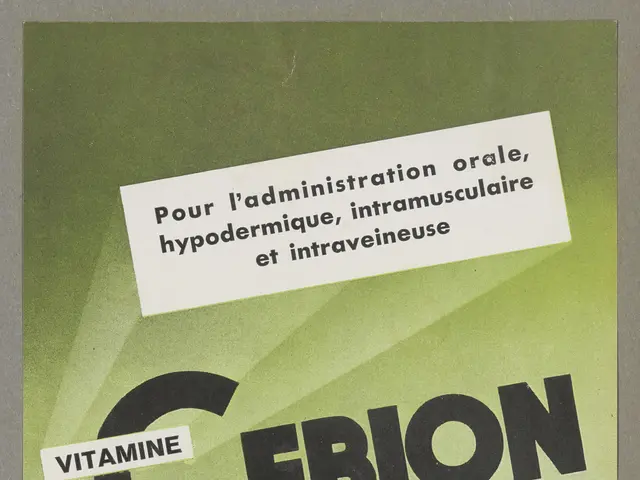Mindfulness and Impulsivity: A Mixed Picture
Exploration of Mindfulness-Based Approach as an Independent Therapy for Impulsiveness: Qualitative Analysis
The relationship between mindfulness and impulsivity, a common problem in various mental health conditions, is a topic of ongoing research. While some studies suggest that mindfulness interventions can be beneficial, the evidence is not always consistent.
Impulsivity in Clinical Populations
In clinical populations, such as those with ADHD, the results are more promising. Four out of six studies have reported significant reductions in impulsivity following mindfulness training[4]. This finding is particularly important given the impact of impulsivity on the daily lives and well-being of those with clinical conditions.
Impulsivity in Non-Clinical Populations
In non-clinical populations, such as students and community samples, the results are less consistent. Three out of five studies showed mindfulness to be effective in reducing impulsivity, while the other two did not find significant effects[5].
The Need for Standardization and Methodological Rigor
The heterogeneity of mindfulness protocols, control conditions, and impulsivity measures across studies makes direct comparisons challenging. The review highlights the need for greater standardization and methodological rigor in future studies to clarify the specific contexts and populations for which mindfulness is most effective as a standalone treatment for impulsivity[6].
The Potential of Mindfulness in Addiction Recovery
In the realm of addiction recovery, mindfulness practices have shown promise. They can help reduce impulsivity linked to addiction by promoting present-moment awareness, reducing cue-reactivity, and enhancing executive functioning[2].
The Role of Neural Underpinnings
Research suggests that impulsivity is linked to brain structures such as the caudate nucleus (CN) and cerebellum, which are involved in reward processing, habit formation, and motor coordination. Mindfulness training has been associated with reduced volume of the CN, which correlates with decreased impulsivity[3].
The Path Forward
While mindfulness interventions show promise in improving cognitive and emotional regulation, their direct impact on impulsivity is less clear. The effectiveness of mindfulness in reducing impulsivity can depend on the specific condition being treated and the baseline characteristics of the individual. Further research is needed to clarify these outcomes and tailor mindfulness interventions for optimal results across different populations.
The current evidence for the effectiveness of stand-alone mindfulness interventions in reducing impulsivity across various populations and mental health conditions is mixed and context-dependent[7]. Further empirical validation is necessary for stand-alone mindfulness treatments to be an important addition to clinicians' toolkits. Some studies found mindfulness no more effective than alternative treatments, suggesting the need to parse out its unique impact more carefully[8].
In conclusion, the potential of mindfulness as a cost-effective, accessible intervention to reduce the toll of impulsivity is clear. However, more high-quality randomized controlled trials with standardized designs, larger samples, multiple measurement modalities, and longer-term follow-up are needed to establish mindfulness as an empirically-validated stand-alone treatment for impulsivity[9]. Examining potential moderators and mediators will be key to understanding what works best for whom, and the design of studies that definitively establish mindfulness as an effective, evidence-based intervention for impulsivity is essential.
[1] Five out of fifteen studies found no significant effects of mindfulness on impulsivity. [2] Mindfulness-based interventions have shown promise for reducing impulsivity as a standalone treatment. [3] The review identifies a need for high-quality studies with randomized controlled designs, larger samples, multiple measurement modalities, and longer-term follow-up to establish mindfulness as an empirically-validated stand-alone treatment for impulsivity. [4] Clinical populations showed the most consistent benefits, with four out of six studies reporting mindfulness-related reductions in impulsivity across various diagnoses. [5] In non-clinical student and community samples, three out of five studies showed mindfulness to be effective in reducing impulsivity. [6] The review calls for the design of studies that definitively establish mindfulness as an effective, evidence-based intervention for impulsivity. [7] The current evidence for the effectiveness of stand-alone mindfulness interventions in reducing impulsivity across various populations and mental health conditions is mixed and context-dependent. [8] Some studies found mindfulness no more effective than alternative treatments, suggesting the need to parse out its unique impact more carefully. [9] The review suggests mindfulness could potentially serve as a cost-effective, accessible intervention to reduce the toll of impulsivity.
- Ongoing research in psychology explores the relationship between mindfulness and disorders like impulsivity, which are prevalent in various mental health conditions.
- In clinical populations, such as those with ADHD, research indicates that mindfulness training can significantly decrease impulsivity levels in four out of six studies.
- In non-clinical populations, like students and community samples, the effects of mindfulness on impulsivity reduction are less consistent, with three out of five studies showing positive results.
- The variability in mindfulness protocols, control conditions, and impulsivity measures across studies complicates direct comparisons and necessitates greater standardization and methodological rigor in future research.
- The effectiveness of mindfulness in the realm of addiction recovery is promising, as mindfulness practices can help reduce impulsivity related to addiction.
- Research reveals that impulsivity is associated with brain structures like the caudate nucleus, and mindfulness training is linked to decreased volume of this region, correlating with reduced impulsivity.
- While mindfulness interventions hold promise in enhancing cognitive and emotional regulation, its impact on impulsivity is less definitive, varying according to the specific condition and individual being treated.
- To further validate the effectiveness of stand-alone mindfulness treatments, more high-quality randomized controlled trials with standardized designs, larger samples, multiple measurement modalities, and longer-term follow-ups are essential.
- Examining potential moderators and mediators will help understand what works best for whom, facilitating the design of studies that definitively establish mindfulness as an effective, evidence-based intervention for impulsivity.
- The path forward involves more research into the application of mindfulness therapy as a cost-effective, accessible intervention to minimize the impact of impulsivity on people's lives.
- Further empirical validation is needed for stand-alone mindfulness treatments to become an integral part of clinicians' toolkits for treating various disorders and mental health conditions associated with impulsivity.




